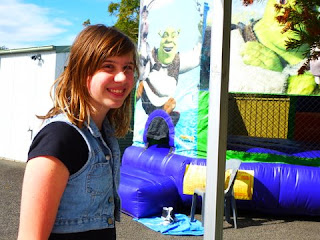I am not going to tell you how to feed your pet (not yet anyway), as this is about my musings. Nutrition is important to me, as is food (if you have seen my body, you will know that I do enjoy food).

But I read alot about claims by people that this food or that food is "all natural" and that pets should eat natural diets. And then they often go on about the foods we are currently feeding our pets (the commercial processed stuff) is harmful, and causes all of our pet's ill's.
And then I hear or read the diet plan given to pet owners by breeders, trainers and anybody who has owned a pet at some point in their lives, with concepts and ideas which are from the 19th century or earlier or following some fad from the 1970's or 80's.
Herein lies a problem - a natural diet for the cat are small rodents - and the natural diet of our domestic dog's ancestor, which were mostly village dogs, were the cooked left overs of the villagers (not the raw bones, raw mince sold in pet shops or butchers, and not the BARF diet promoted by whoever promotes it as natural).
The health of the human race, and the longevity of many animals improved when they started eating cooked food/ Is this a fact that can be disputed? Our health improved when we started trying to balance our diet with the five food groups. We are living longer lives, and that is in part, due to the improved "non natural " diet we eat. Our problem now is that our bodies are living longer than our brains can cope, and this has created another problem, but this musing is not about dementia, but nutrition.
So what is a natural food for a dog? What is a natural food for a cat? I certainly don't want to eat my ancestors "natural food", as finding a mammoth or two might be a bit difficult (and a bit chewy I would imagine). If I go to a more recent era, being Aussie born to Polish born parents - that would pork, sausage,
 |
| So what is a natural diet for us or cats? |
So I would challenge you to think of what your pet should eat as the best food that keeps them healthy, alive and happy for as long as they can be... and that may mean not listening to what everyone else is saying, but going back to your pet. The health of your pet is a good guide on how the nutrition thing is working (or not).
As a vet, I have recommended home made diets, commmercial diets, combination of the two - depending on the patient. My nutritional recommendations are individualised.... which is why my veterinary hospital stocks several different brands of foods. For example, I like one brand for their gastrointestinal diet, and I like another for feline urinary issues.
This is what makes me "not a great clinic" (a true quote), because I will only recommend what is best for the patient, not a brand overall. It makes me a bad clinic for marketing or sales people, because I can't present a neat "one brand only" wall of pet food either, and for you.. well, it may look messy, because I stock a different food for puppies and kittens, another for skin, another for dental, and a few for urinary.... and so on and on.
I have seen pets do badly on natural diets, and some do great. Nutrition is not simple, and mistakes are easily made, even by the best of us.
Just don't get caught up by the hype on the packet or the cute photos of the pet or the gorgeous hunk on the TV ad.
Make the effort to speak to your vet about your pet's food. We may not be cute or hunky, but geez, we are awfully clever. All of us vets really want your pet to live a long and happy life. I know, as I say often, our animals are not with us for long enough... and nutrition is the NUMBER ONE way we can keep them with us for longer.
And seeing a pet live a long, happy, pain- free life brings me joy .. it is why I do what I do every day. And I am not the only vet out there who feels the way I do.
And on a final (almost) note... before you think about feeding any human food item to your pet, please check with us, or even google it first... for example - macadamia nuts are really yummy, but they are toxic to your dog. What about grapes? It's a fruit, should be healthy, shouldn't it? No - its not - it can kill some pets. Dogs are not small people - which is just as well, as they are alot cuter than many people I know!
I am Dr Liz, and I am here to help you look after the most important thing - your pet.
If there are any questions about nutrition in your pet, why not come in to speak with me or Dirk (my other half). You can post questions below or email me directly.
Call us on 42845988 or email us directly.
























